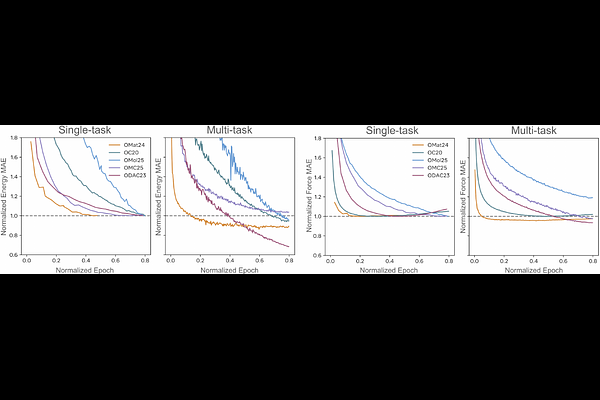UMA: A Family of Universal Models for Atoms

UMA: A Family of Universal Models for Atoms
Brandon M. Wood, Misko Dzamba, Xiang Fu, Meng Gao, Muhammed Shuaibi, Luis Barroso-Luque, Kareem Abdelmaqsoud, Vahe Gharakhanyan, John R. Kitchin, Daniel S. Levine, Kyle Michel, Anuroop Sriram, Taco Cohen, Abhishek Das, Ammar Rizvi, Sushree Jagriti Sahoo, Zachary W. Ulissi, C. Lawrence Zitnick
AbstractThe ability to quickly and accurately compute properties from atomic simulations is critical for advancing a large number of applications in chemistry and materials science including drug discovery, energy storage, and semiconductor manufacturing. To address this need, Meta FAIR presents a family of Universal Models for Atoms (UMA), designed to push the frontier of speed, accuracy, and generalization. UMA models are trained on half a billion unique 3D atomic structures (the largest training runs to date) by compiling data across multiple chemical domains, e.g. molecules, materials, and catalysts. We develop empirical scaling laws to help understand how to increase model capacity alongside dataset size to achieve the best accuracy. The UMA small and medium models utilize a novel architectural design we refer to as mixture of linear experts that enables increasing model capacity without sacrificing speed. For example, UMA-medium has 1.4B parameters but only ~50M active parameters per atomic structure. We evaluate UMA models on a diverse set of applications across multiple domains and find that, remarkably, a single model without any fine-tuning can perform similarly or better than specialized models. We are releasing the UMA code, weights, and associated data to accelerate computational workflows and enable the community to continue to build increasingly capable AI models.